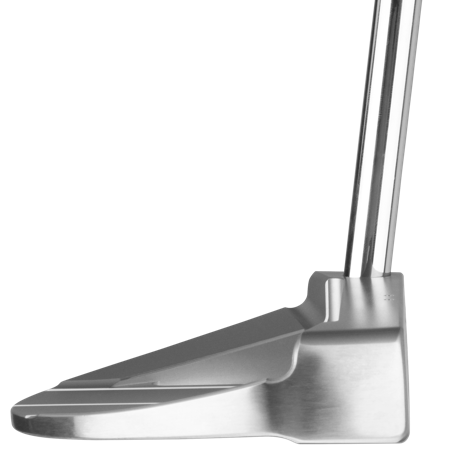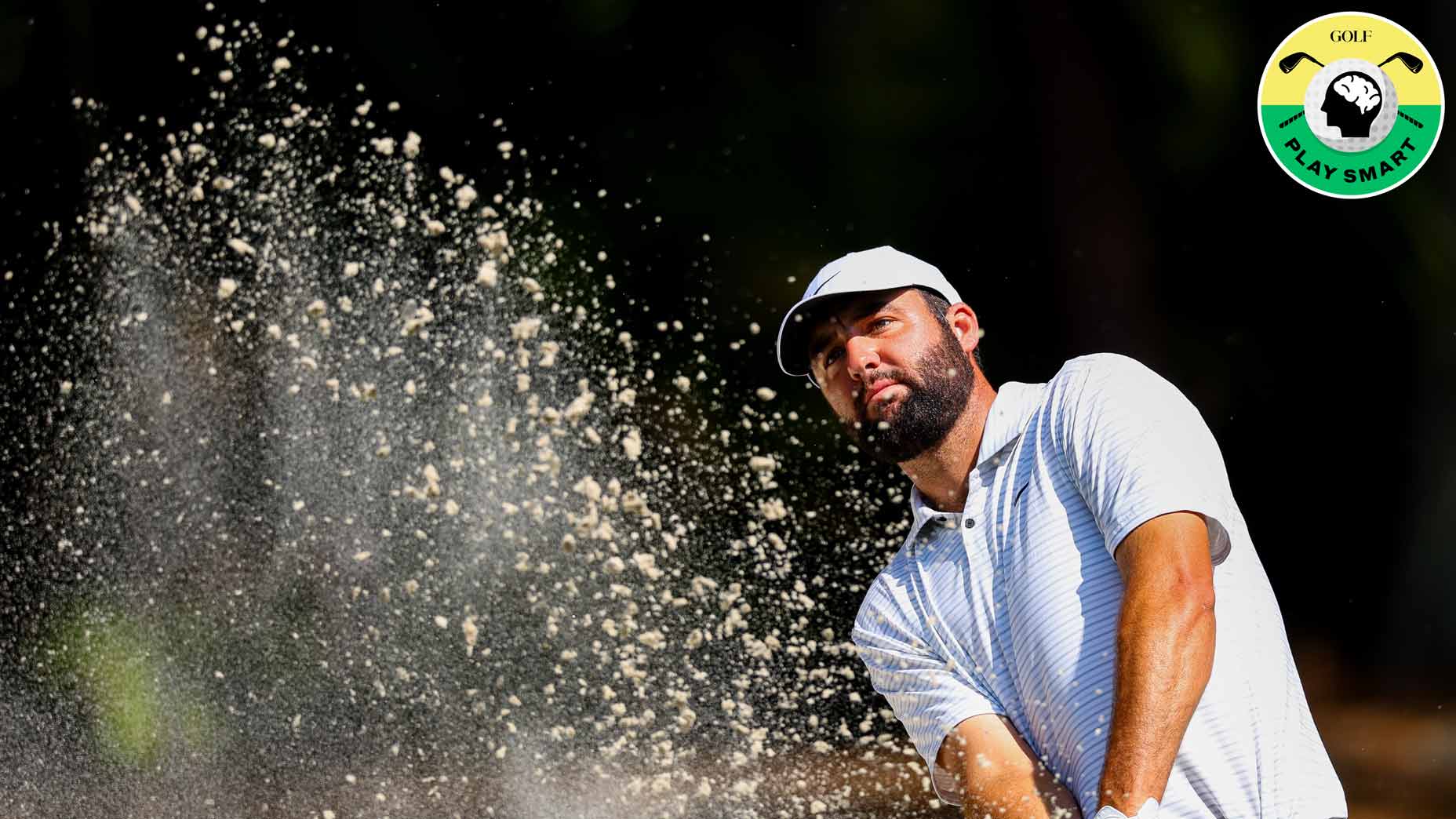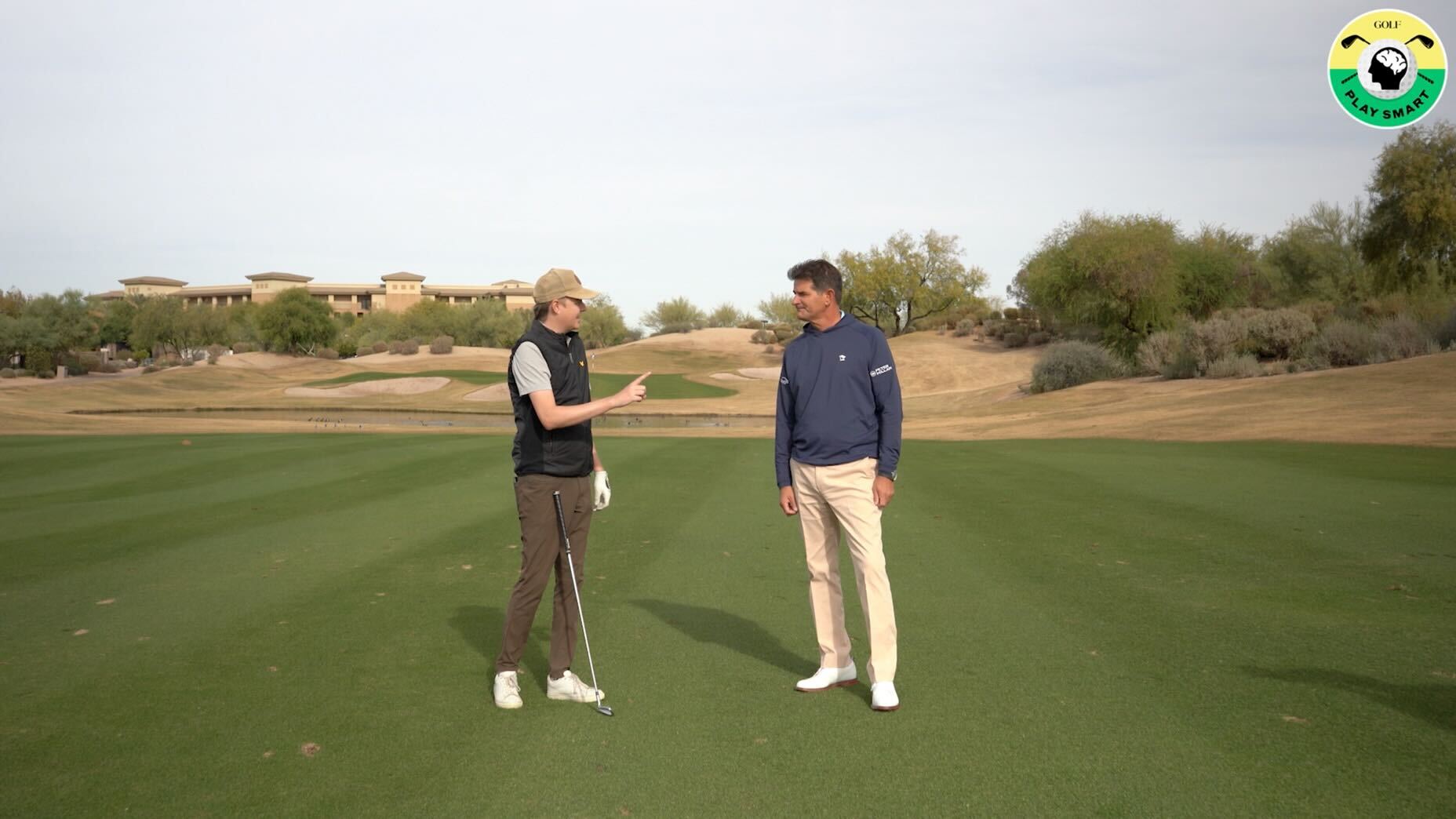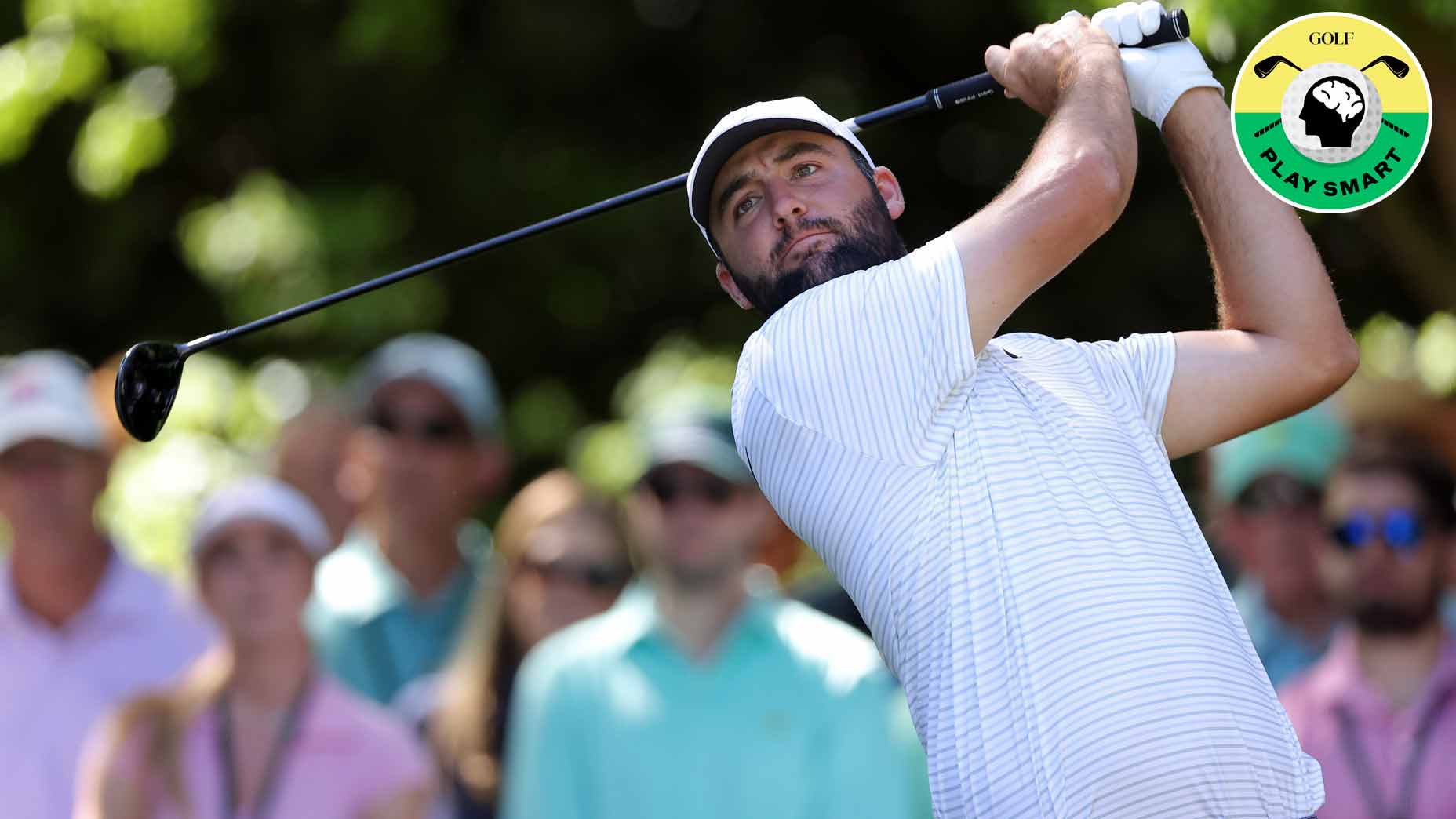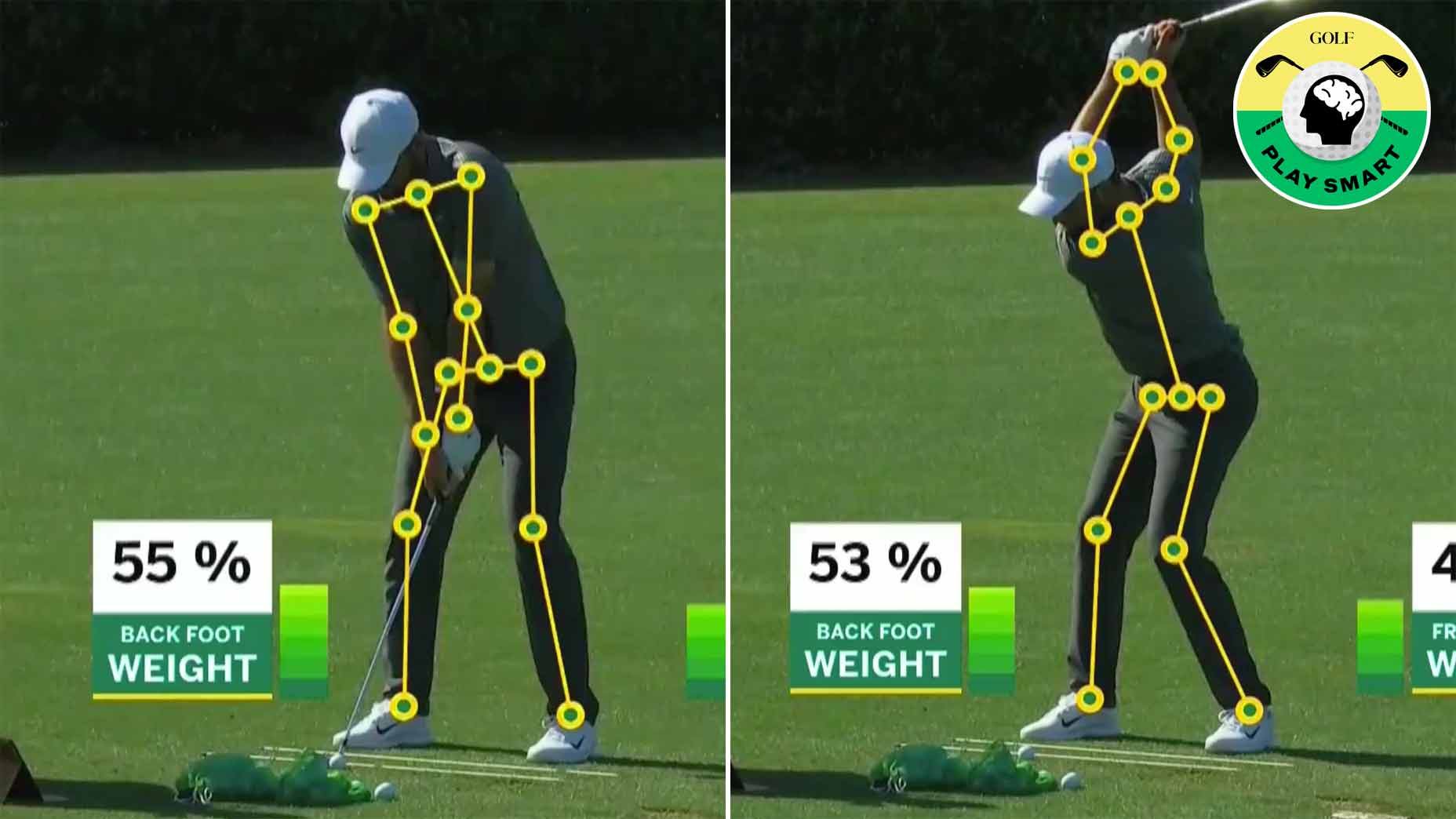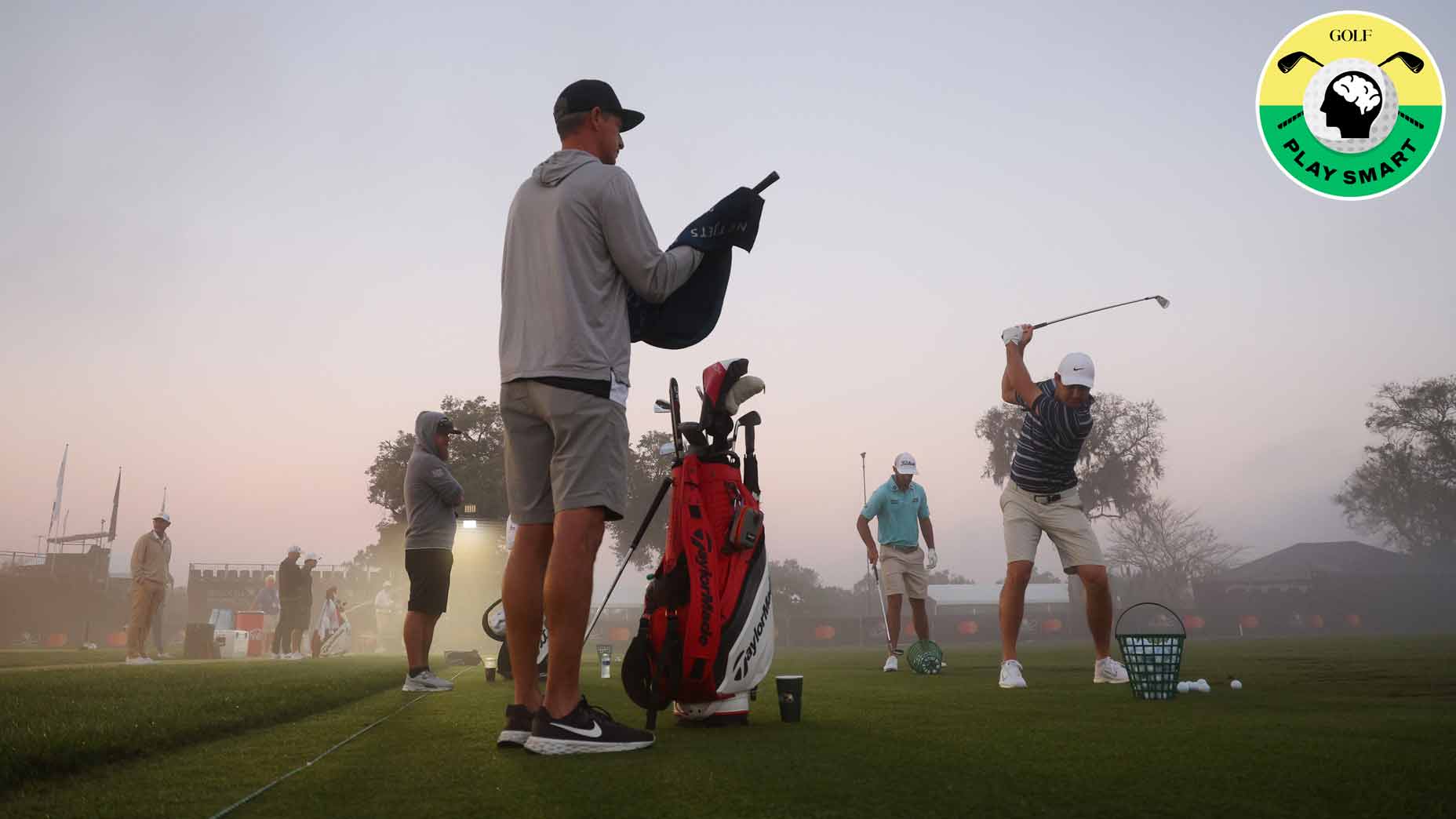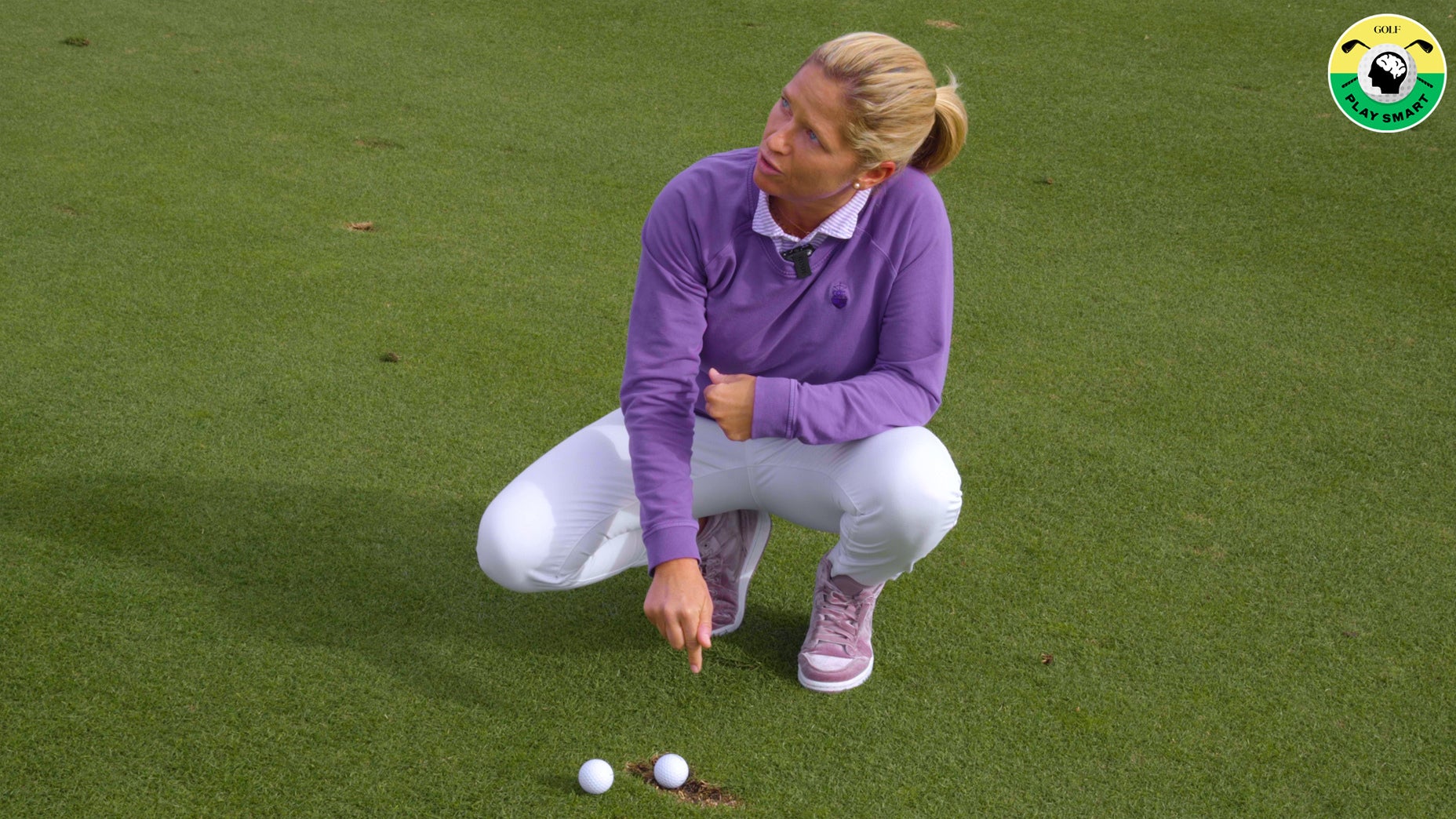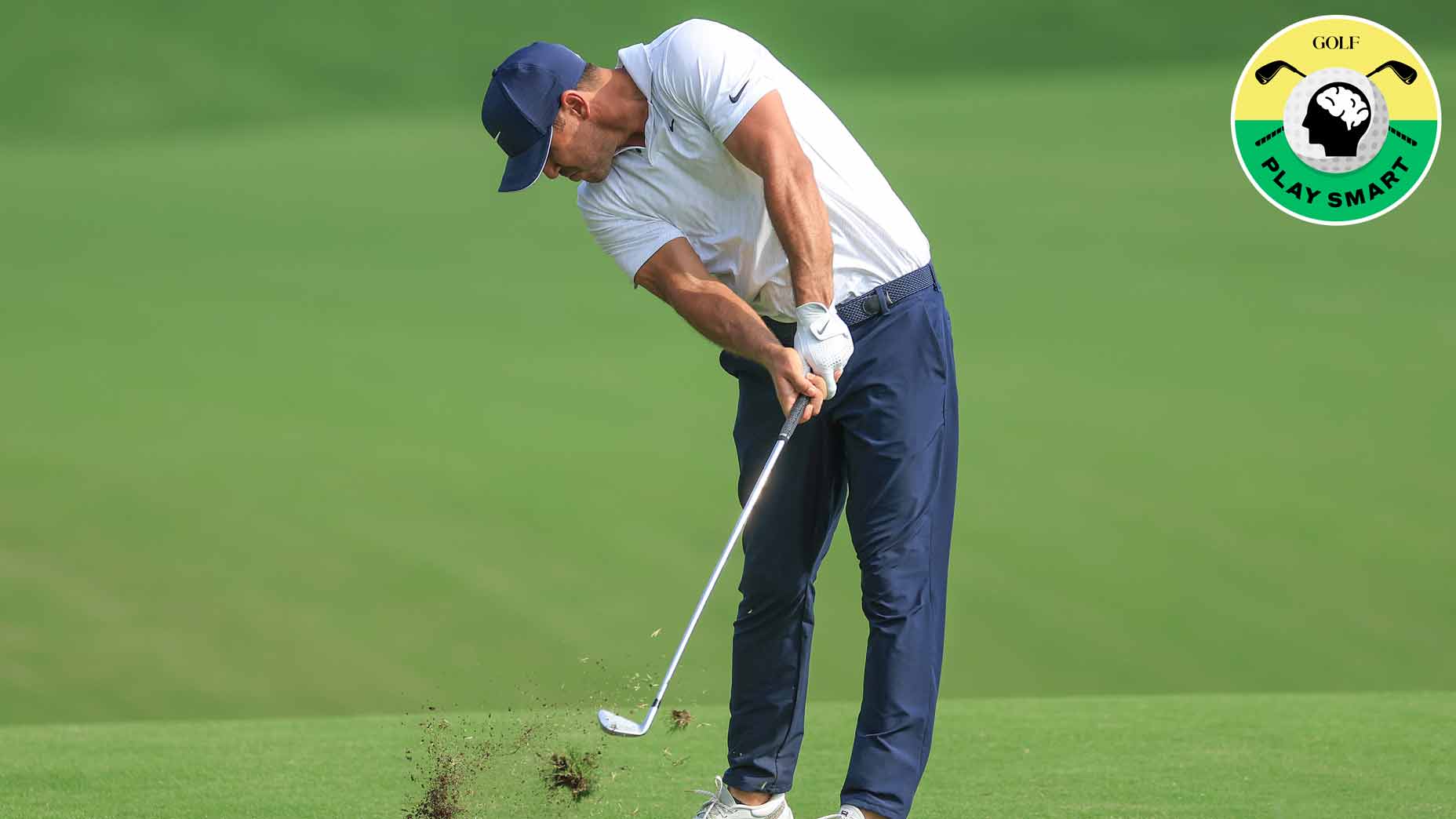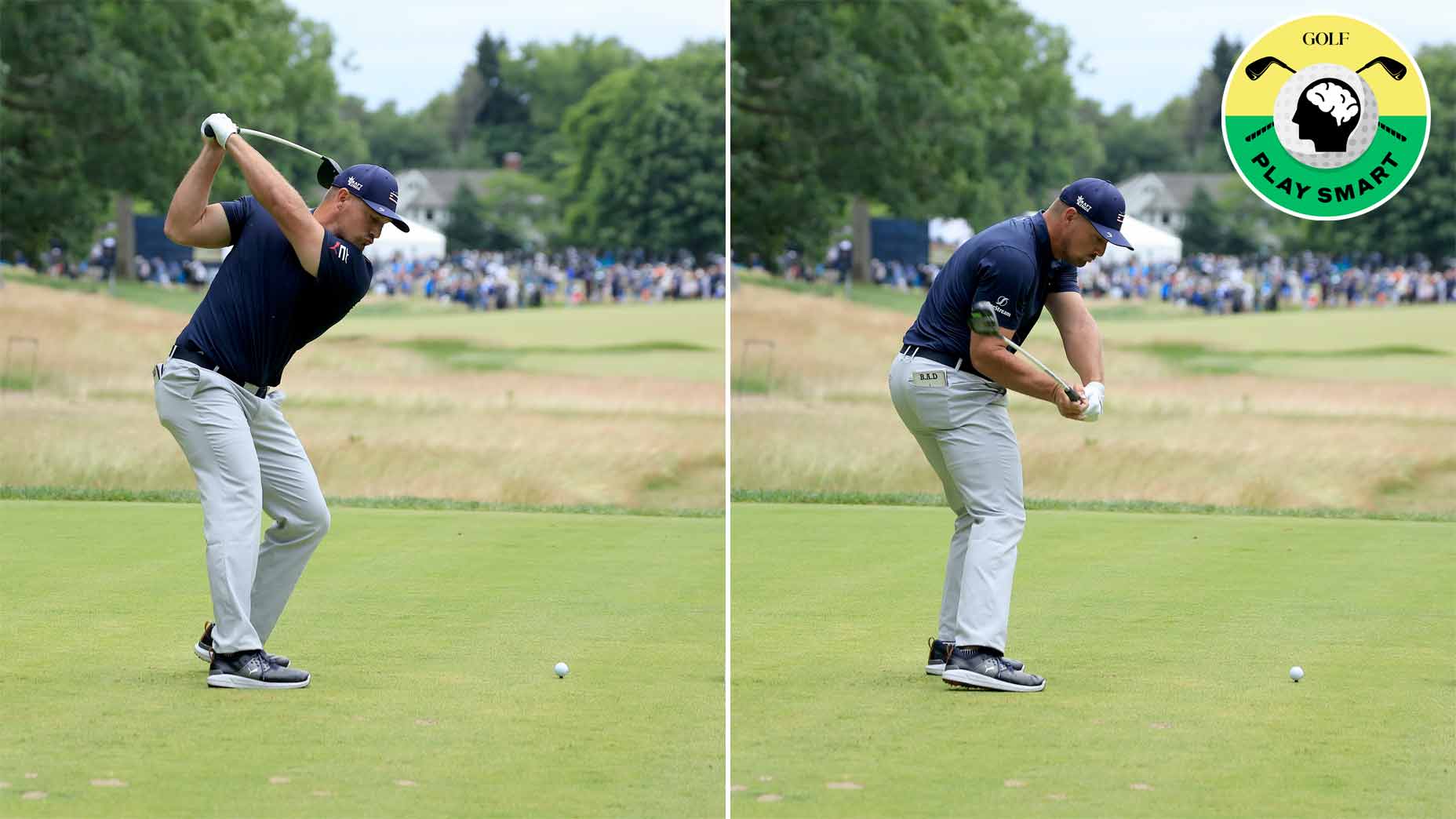Doing this on the golf course can make you happier and healthier, according to a new study
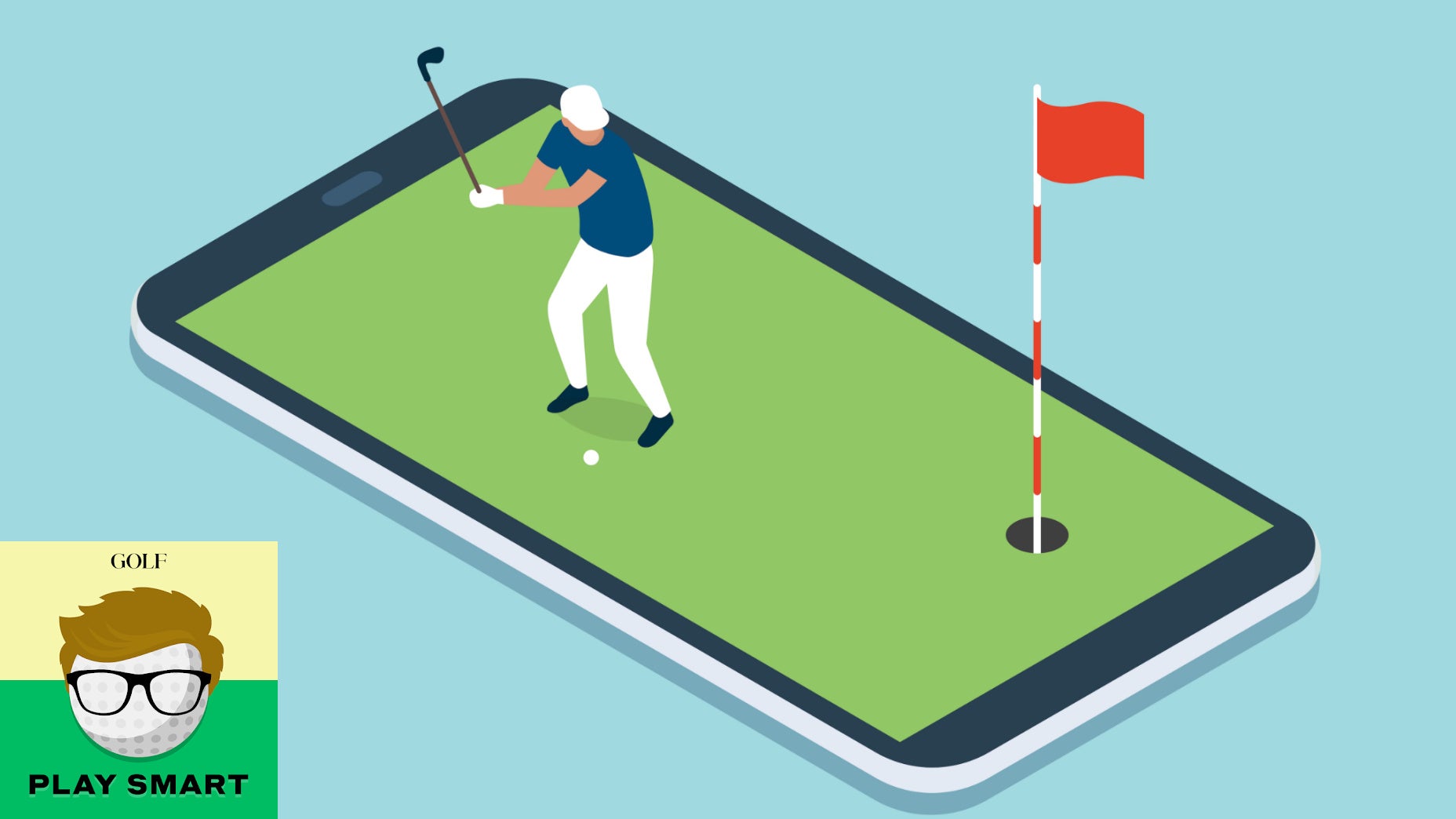
Managing your screen time will make you a happier, healthier golfer.
Getty Images
Welcome to Play Smart, a new game-improvement column that drops at noon (ET) every Monday, Wednesday, and Friday from Director of Game Improvement content Luke Kerr-Dineen to help you play smarter, better golf.
The rhythm of everybody’s life has been disrupted in some way, shape or form over the past year. Trips were postponed, family gatherings cancelled, and home offices became the norm. But being forced to spend so much extra time indoors led to an unexpected side effect: a boom for the golf industry. People value being outside and staying active more than ever, but want to do so in a safe environment. Hence people flocking to golf, a game seemingly destined for the moment.
Which brings us to an interesting new study just released by Anglia Ruskin University, which should both excite and inform golfers the next time they head to the course.
Staff picks: The best from TaylorMade
Shop NowThe study, published in the Journal of Happiness Studies, focused on the effects lockdowns and quarantines have on people’s mental health. They tracked 286 adults over nearly a month. The participants were only allowed outside for certain reasons, like exercising, and would self-report their happiness level three times a day.
The study found that people were at their most happy when they were outside, which is perhaps expected when they’re spending so much time stuck indoors. But it wasn’t just about being outside that made them happier; it was the act of actually getting away from their devices and cutting down on their overall screen time which boosted their overall happiness.
Put simply: The more time people spent outside without their phones, the happier and less lonely they felt than people who spent more time indoors in front of a screen.
Should you turn your phone off on the course?
For golfers who treat a round on the course as their exercise, it sparks an age-old debate about what role your phone should play, if any, during your round.
Personally, I’m not going to shout somebody down for having one, and I’m all for promoting more Topgolf and simulator-style golf experiences where golfers can remain more plugged-in. And, of course, there are instances when using your phone is acceptable, even highly useful: You may get your yardages via a GPS app, in which case you need your phone. That’s fine too!
In this day and age, it’s not about eliminating your screen time altogether, which is both impractical and impossible. It’s about managing it, so you’re not spending time on your phone unnecessarily. There’s a difference between getting a yardage on your phone and answering a work email before your next shot, and it’s the excess screen time which the study highlights as a negative impact on people’s mental health.
Which is why it’s important for golfers to remind themselves that the course is supposed to be a sanctuary where you can get away from it all. Bringing the office with you to the course will only undermine that experience and, as the study shows, make you more unhappy.
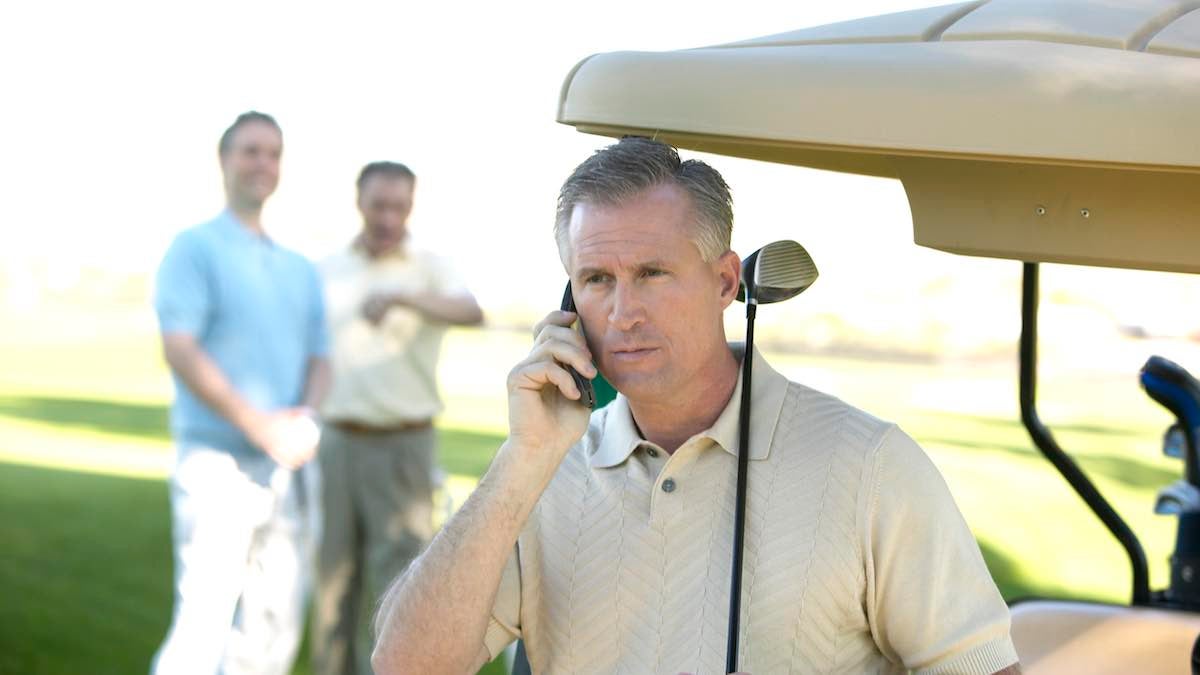
So, instead, here are a few ways you can unplug without totally divorcing yourself from your device:
- Use your phone, but use it sparingly. If you do use your phone for yardages, don’t get sidetracked by the other stuff. Use your phone for the information you need it for and then put it away. Having your phone for yardages isn’t an excuse to check Twitter along the way.
- Consider an old-school alternative. If like using your phone for yardages but want to try something different, I’ve become a big fan of our sister company Golf Logix’s Green Books (and no, I’m not just saying that. I have one for my home course in Connecticut and use it all the time). It’s all the same science-based information, but in a more traditional format.
- Out of sight, out of mind. When you’re on the golf course, I’d suggest keep your phone in your golf bag, rather than your cart or pocket. That way, you’ll be less likely to check it.
- Switch off. If you want a full-screen detox, don’t turn your phone on silent. Turn your phone off. Again, it’ll make a quick-but-unnecessary check less tempting, and don’t worry, you can always turn it on again.
- Lay the groundwork so you can really unplug. Along those lines, before you play tell your colleagues or other people with whom you’re frequently in touch that you’re going to be offline a bit, and that you’ll get back to them but it won’t be immediately. They’ll survive.
- Stick to a schedule. And finally, rather than constantly monitoring your phone, schedule yourself periodic check-ins. Every six holes, for instance, or after nine and 18.




